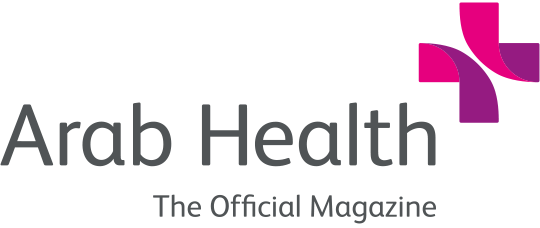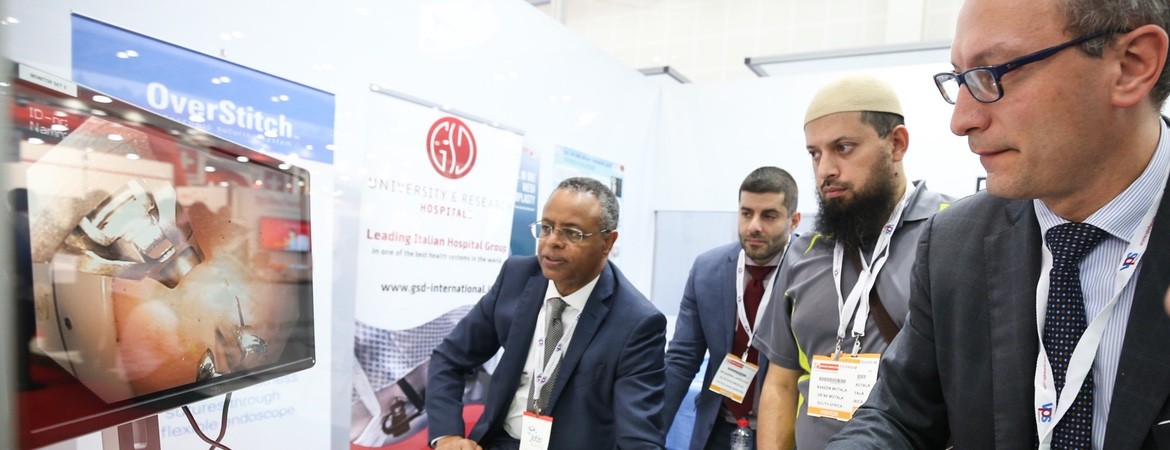Global Perspectives at Arab Health 2017
By Arab Health Magazine Staff , 17 February 2017
By Arab Health Magazine Staff , 17 February 2017
Perhaps the biggest date on every middle east healthcare calendar, the Arab Health Exhibition & Congress, kicked off 2017 with the biggest edition of the show ever held, taking up more space with more exhibitors than ever before. Featuring 4,400 companies showcasing their latest innovations and well over 100,000 attendees from over 70 countries, the show drew significant interest from well beyond the Middle East region it was established to serve. Indeed, in addition to official ministerial visits from countries across the region such as Saudi Arabia, the exhibition hosted a number of ministers and dignitaries from places much further afield such as Ireland, the United Kingdom, Finland and the United States.
These visits demonstrate just how important the middle east is in terms of the global healthcare market (with the healthcare industry in the region is set to grow to a value of US$71bn by the year 2020) and the role that the Arab Health Exhibition and congress plays in opening that market to companies from around the world.
Jukka Hahlanterä, Head of Region for the Middle East at Finpro explains that in Finland’s view, the Middle East is an extremely important market. “We see the Middle East as one of the hotspots in the world right now” he says, highlighting “what the emirates and Dubai have as a vision for healthcare and the wellbeing of people as well as being the health tourism capital of the world by 2021.”
His colleague, Meria Heikelä, Finpro’s Program Director echoes this sentiment, saying that Finland has “identified this market as one of the most interesting markets in the world.” Going further, she picks up on the UAE’s 2021 healthcare goals, citing the increased focus on preventative care. She cites the work that Finland has done in terms of prevention. “We have overhauled our whole society through prevention efforts and we would like to share this knowledge with the emirates.” She continues, highlighting both commercial and governmental cooperation opportunities between Finland, the UAE and the Middle East as a whole in areas such as hospital management, cancer screening programs and monitoring devices.
While the main focus on the Arab Health show floor is certainly private commercial opportunities, with a significant number of significant deals being signed both in terms of monetary value and their impact on healthcare provision in the region, there is a second, less visible current on the show floor whereby governments seek to establish or enhance their ties to the region as a whole through cooperation on a variety of healthcare issues.
A prime example is the visit by the UK’s Nicola Blackwood MP, Parliamentary Under Secretary of State for Public Health and Innovation. Blackwood made the trip to Arab Health due to the fact that “the UAE is a long term partner in all sorts of areas, particularly in terms of healthcare.” The UK and the UAE have, she continued, “a long tradition of exchange of ideas, exchange of training. Particularly here at Arab Health we have over 200 NHS trusts and healthcare companies which just goes to show what an important market this is for the UK.”
In addition to the UAE and Middle East being vital healthcare markets for UK companies, Blackwood highlighted the relationship building that happens, citing “meetings with ministers and clinical leaders discussion how we share so many healthcare priorities such as diabetes, obesity and smoking and discussing ways we can cooperate.”
There is, she explains, “a long tradition of Emiratis coming to the UK to train as doctors and UK medics coming to the UAE to work.” the two countries are, she says, looking at ways of formalising such relationships.” However, in addition to mutually beneficial programs between the two countries, Blackwood is keen to highlight the fact that there are areas where the UK can help improve healthcare in the region where most health systems -while some such as the UAE have made huge leaps - are still seen as emerging markets. As such, Blackwood suggests that the Unlocking at sharing its experiences and best practices in tackling diabetes, a huge problem in the Gulf. “The diabetes prevention program we’ve developed in the UK we’re looking at those who are at high risk of diabetes but haven’t yet developed it and offering them a program looking at diet and exercise so they can stop themselves from becoming diabetic and looking at how we can maybe cooperate with the UAE in bringing some of this in here.” This is something, she says, that she has been discussing “throughout Arab Health”
A more concrete example of international cooperation was on display at the exhibition’s Hands-on-Training sessions, which allowed more than 900 physicians, surgeons and technicians from the region to learn and practice new techniques using state-of-the-art equipment for specialised treatments in a variety of areas. The aim of the Hands-on-Training sessions was to support the need for more specialised medical training in the region in order to bridge the gap between advanced medical techniques and regional expertise.
One such session was organized by Alder Hay Children’s Hospital and 3D life prints, offering practical advice and skills training on integrating 3D printing technology into surgical workflows for training, planning and the production of patient specific implants. Visited by Blackwood as part of her tour of the exhibition, she was keen to point out just how significant technologies such as 3D printing are to healthcare systems across the globe. In her role as minister for public health and innovation she explained, she sees only two solutions to tackling the long term issues facing healthcare. “One is prevention and the other is innovation as that’s the only way we’re going to deliver sustainable and affordable healthcare in both our nations.” Something such as 3D printing then, when patient specific implants can be made quickly and at a much lower cost than before as well as reduce the chance of complications by allowing patient specific training also reduces cost to the health system. In addition, Blackwood is hopeful that the technology can “reduce a lot of challenges we have with training”. It is, she says, “obviously beneficial for the patient, obviously beneficial for the clinician and obviously beneficial for our health systems in terms of reducing costs and reducing complications.”
Arab Health then, alongside its role connecting dealers, distributors and companies, providing a number of CME accredited conference tracks and skill specific hands on training, also draws significant interest from around the globe, demonstrating just how important the Middle East and the Gulf in particular has become as a healthcare market. Indeed, Pat Breen TD the Irish Minister for employment and small business describes the middle east and Arab Health as being “Very important for us to grow the medtech sector in Ireland.” More than medical technology companies however, the middle east presents a wealth of opportunities for international collaboration. As its healthcare systems continue to develop apace, there remain a number of areas where the region could benefit from the long healthcare legacies found in other parts of the world. As Jukka Hahlanterä, says, “theres a lot of things together that we think we can help with for the emirates and Dubai to reach those targets.”


